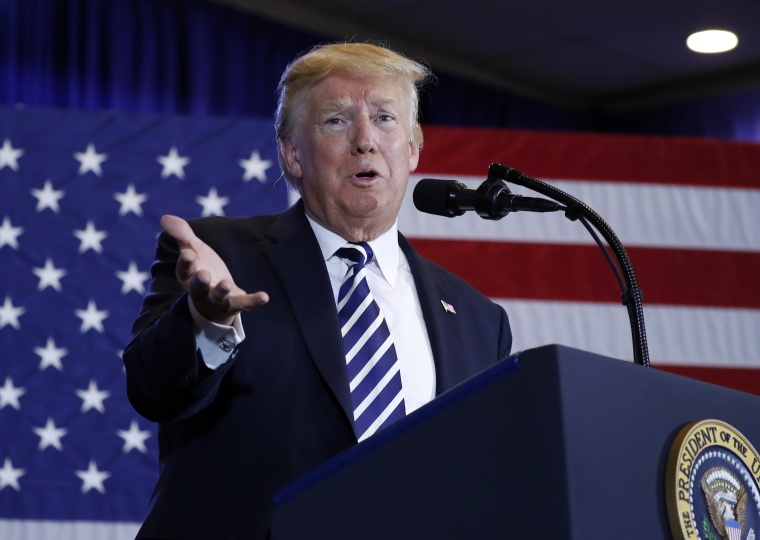President Donald Trump said Friday that he would spend part of his Labor Day weekend taking a “good hard look” at his controversial decision earlier this week to cancel scheduled pay raises for most federal employees due to government budget concerns.
“I'm going to study that over the weekend,” Trump said at an event in Charlotte, N.C., Friday afternoon about the pay freeze. “I’m going to take a good, hard look over the weekend.”
The comments come after his Thursday pay freeze announcement was met with heavy criticism from several lawmakers, including some Republicans with districts in northern Virginia, where many federal employees live.
Trump, in a Thursday letter to House and Senate leaders, wrote that he’d decided “across-the-board” pay raises as well as locality pay raises for civilian federal workers scheduled to go into effect in January 2019 would be frozen.
“We must maintain efforts to put our Nation on a fiscally sustainable course, and Federal agency budgets cannot sustain such increases,” Trump wrote in the letter. He also said then that a 25.7-percent pay raise for localities, as well as a 2.1-percent pay increase for across-the-board pay — both scheduled for January 2019 — would add billions to the federal deficit. Specifically, he pointed to the scheduled locality pay raise as costing $25 billion.
The letter came just nine months after Trump signed his $1.5-trillion tax cut bill into law and five months after he signed a mammoth $1.3-trillion spending bill. The combined effect of both bills is expected to send the government's budget deficit toward the $1 trillion mark next year, according to an analysis by the Congressional Budget Office.
